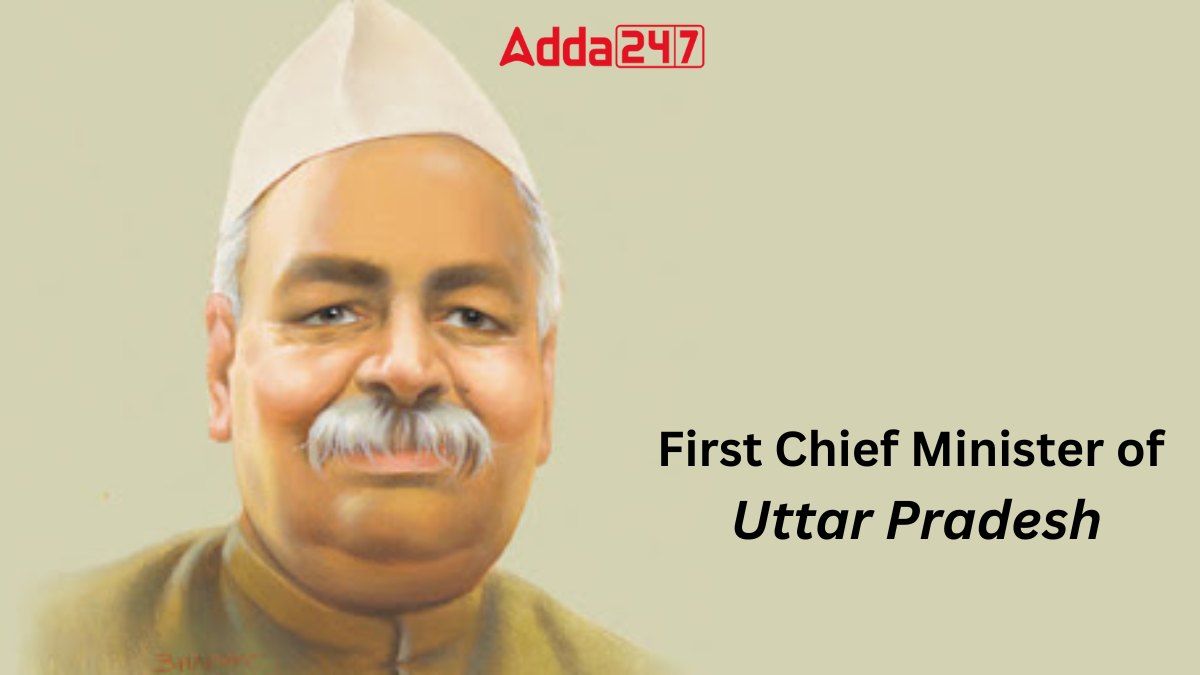As the most populous state in India, Uttar Pradesh holds a significant place in the country’s political landscape. It is a land of rich history and cultural heritage, with a legacy of impactful leadership. Among the notable figures who shaped the state’s trajectory, the first Chief Minister of Uttar Pradesh stands out as a pioneering leader whose contributions laid the foundation for the state’s governance and development. Let’s delve into the life and legacy of this eminent figure.
Who was the First Chief Minister of Uttar Pradesh?
Govind Ballabh Pant, a luminary of India’s freedom struggle and a towering figure in Indian politics, assumed the mantle of the first Chief Minister of Uttar Pradesh with a vision to usher in a new era of governance and progress. His tenure marked a watershed moment in the history of the state, laying the groundwork for its socio-economic development and political evolution. Let’s delve into the life and legacy of this illustrious leader as the inaugural Chief Minister of Uttar Pradesh.
First Chief Minister of Uttar Pradesh – Key Details
| Name: Govind Ballabh Pant |
| Date of birth: 10th September 1887 |
| Birthplace: Khoont, North-western Provinces, British India |
| Known for: 1st Chief Minister of Uttar Pradesh |
| Political Party: Indian National Congress |
| Death: 7th March 1961 |
| Place of death: New Delhi, India |
| Awards: Bharat Ratna |
Inaugural Chief Minister of Uttar Pradesh – Early Life and Political Journey
Born on September 10, 1887, in Khoont village near Almora, Govind Ballabh Pant was imbued with a spirit of public service from an early age. His upbringing in a family deeply rooted in Indian culture and his education at Allahabad University shaped his commitment to the cause of Indian independence. Pant’s foray into politics began in the early 1920s when he actively participated in the Indian Nationalist Movement, aligning himself with the Congress party and championing the rights of the oppressed.
Uttar Pradesh’s First Chief Minister – Role in the Freedom Struggle
Pant’s tenure as Chief Minister of Uttar Pradesh was preceded by years of relentless struggle against British colonial rule. His indomitable spirit and unwavering commitment to the cause led him to the forefront of several key movements, including the Salt March and the Quit India Movement. Pant’s legal acumen and leadership skills earned him the respect and admiration of his peers, solidifying his position as a prominent leader within the Congress party and the broader nationalist movement.
Govind Ballabh Pant as First Chief Minister of Uttar Pradesh
Assuming office on January 26, 1950, Govind Ballabh Pant embarked on a mission to transform Uttar Pradesh into a model state of progress and prosperity. His tenure witnessed a slew of progressive reforms aimed at uplifting the masses and fostering inclusive growth. Pant’s emphasis on education, healthcare, and infrastructure development laid the foundation for Uttar Pradesh’s emergence as a powerhouse of economic activity and social advancement.
Landmark Policies and Initiatives of First Chief Minister of Uttar Pradesh
During his tenure, Pant introduced several landmark policies and initiatives that left an indelible mark on the state’s governance landscape. He prioritized land reforms to empower farmers and promote agricultural productivity, while also focusing on industrial growth and job creation. Pant’s administration played a pivotal role in resolving socio-political tensions and fostering communal harmony, thereby ensuring peace and stability in the state.
First Chief Minister of Uttar Pradesh – Legacy and Enduring Impact
Govind Ballabh Pant’s legacy as the first Chief Minister of Uttar Pradesh continues to inspire generations of leaders and citizens. His visionary leadership, integrity, and commitment to public service serve as guiding principles for governance and administration. Pant’s contributions to the socio-economic development of Uttar Pradesh earned him accolades and recognition, including India’s highest civilian honor, the Bharat Ratna, in 1957.




 Which Country is known as the Land of Mo...
Which Country is known as the Land of Mo...
 Which Languages is known as the Mother o...
Which Languages is known as the Mother o...
 Which Country is known as the Highest Pr...
Which Country is known as the Highest Pr...








